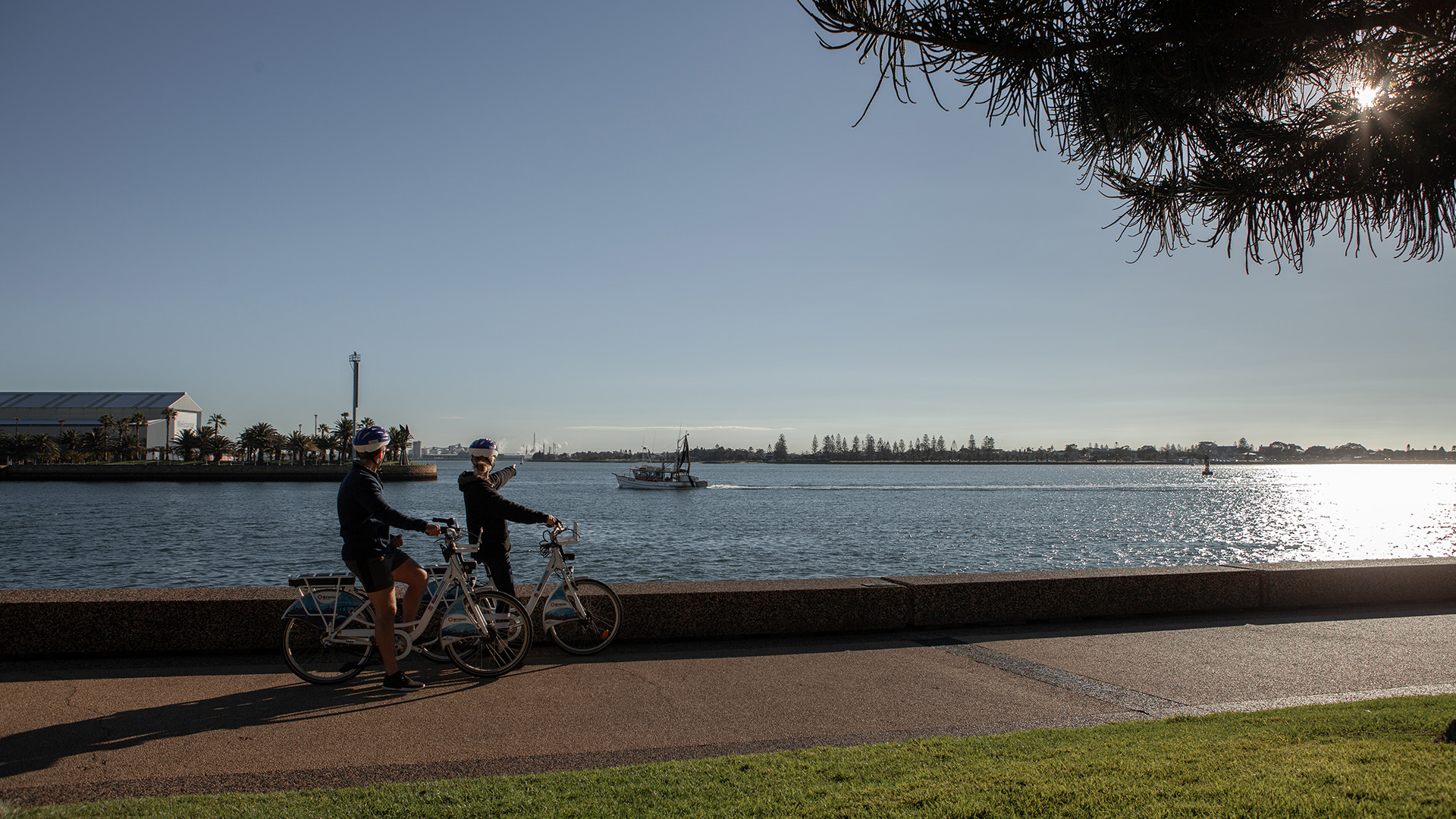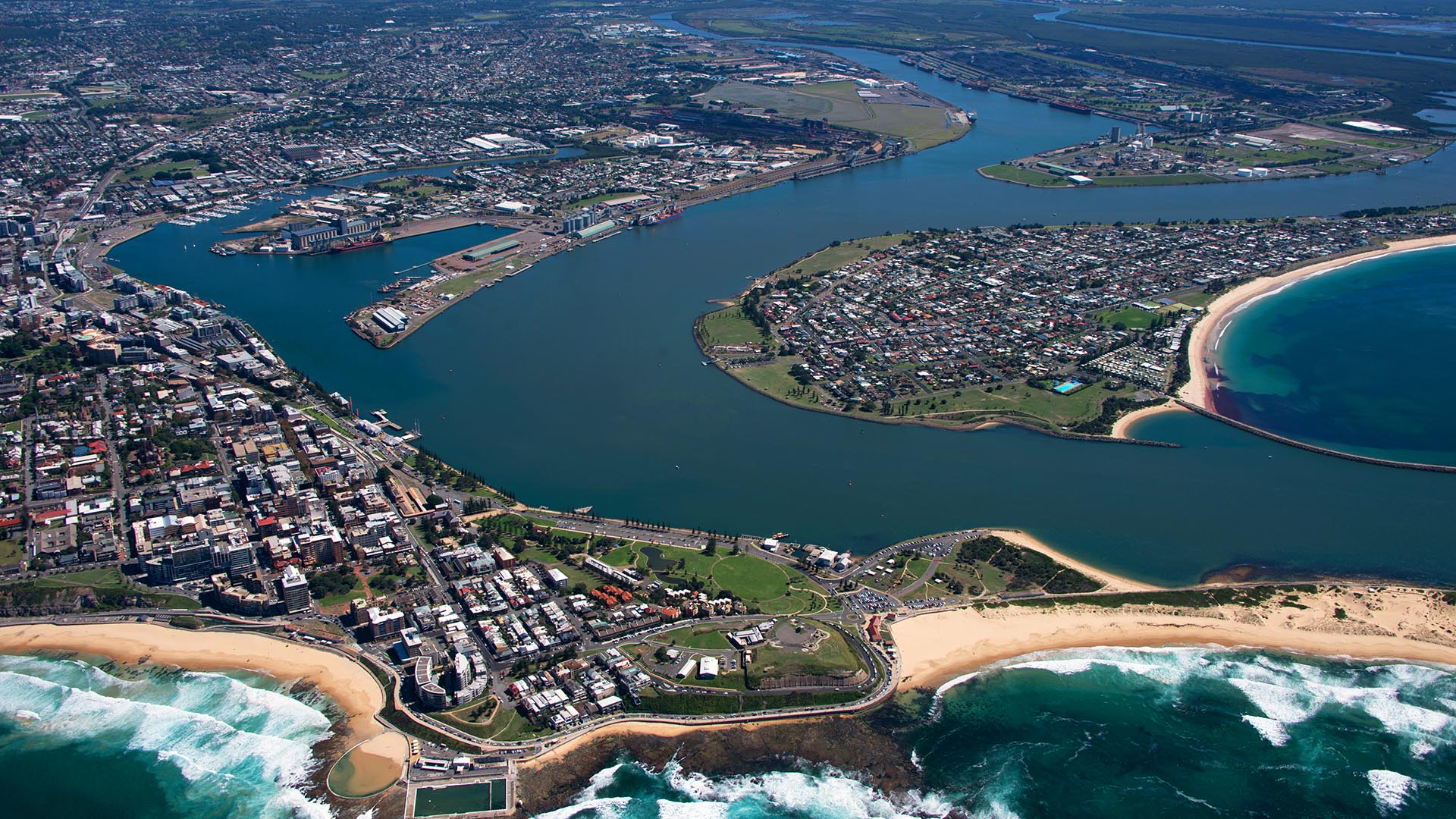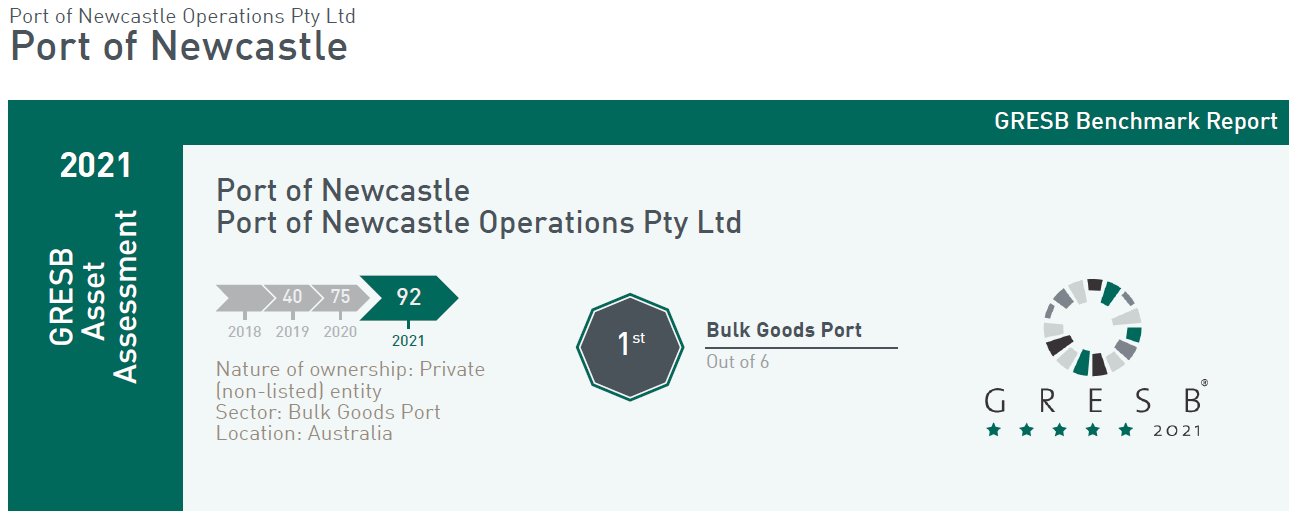

Port of Newcastle has been awarded 1st place in its sector in Oceania and second place globally by GRESB, the world’s leading environmental, social and governance (ESG) benchmark.
The GRESB score is an overall measure of ESG performance, represented as a percentage out of 100, which gives quantitative insight into ESG performance over time and against participating peer organisations.
“Just three years ago at the beginning of our sustainability and diversification journey we started with a GRESB score of 40. We jumped to 75 last year and now in 2021, we are ranked first across participating ports in Oceania and second globally having achieved a score of 92 out of a possible 100,” said CEO Craig Carmody.
“This is a great achievement for the Port of Newcastle, and we are committed to doing more to build on our sustainability initiatives into 2022 and beyond.
“We welcome these rankings, particularly the GRESB first place ranking achievement in the Oceania sector. It provides important comparison for the Port as to how we are tracking against other ports and organisations in measuring our progress against the leading global standards for best sustainability practices.”
This year, Port of Newcastle achieved GRESB 5 Stars, the highest rating and recognition for being an industry leader.

The GRESB number one ranking Bulk Goods Port achievement is the result of a multi-year effort across the Port to diversify for the future and embed Environment, Social and Governance (ESG) practices across the business and its culture.
“We have handled a mix of trade for 222 years and bring more than 25 different cargoes through our deepwater global gateway, but we have our sights set on more. As the world’s largest coal exporting port, we know that it is imperative for Port of Newcastle to focus on diversification now to ensure a sustainable and economically resilient business for the future.”
“In the past 12 months we have secured an industry first Sustainability Linked Loan which directly links the cost of our debt to achieving our sustainability targets, established an Indigenous STEM Scholarship with the University of Newcastle, secured a 100% renewable energy contract for 90.5% of the Port’s electricity use, gained Silver Partner status in the Department of Planning, Industry and Environment’s Sustainability Advantage Program, and increased diversity and inclusion in our workforce.
“By taking this long-term approach to our business strategy we are working to create a strong, thriving Port that continues to support local jobs and the economic prosperity of the Hunter and NSW economies,” Mr Carmody said.
The Port of Newcastle’s ESG Strategy sets out the Port’s commitment to Net Zero by 2040 and approved Science Based Target initiative target of 30% reduction greenhouse gas in line with below 2-degree trajectories. The Port is also committed to undertaking GRESB benchmarking annually.
For more information about the GRESB 2021 rankings, visit the GRESB website.
Port of Newcastle
Port of Newcastle Port of Newcastle is Australia’s deepwater global gateway, the largest on the nation’s East Coast. Port of Newcastle is more than a port. It exists to build Australia’s prosperity with responsible, integrated and innovative supply chain solutions. With trade worth about $26 billion to the national economy each year, Port of Newcastle enables Australian businesses to successfully compete in international markets. The port currently handles 4,400 ship movements and 164 million tonnes of cargo annually, including dry bulk, bulk liquids, ro-ro, general and project cargoes and containers. With a deepwater shipping channel operating at 50% of its capacity, significant port land available and enviable access to national rail and road infrastructure, Port of Newcastle is positioned to further underpin the future prosperity of the Hunter, NSW and Australia. As custodians of the region’s critical asset, Port of Newcastle is diversifying its trade as it strives to create a safe, sustainable and environmentally and socially responsible future.
